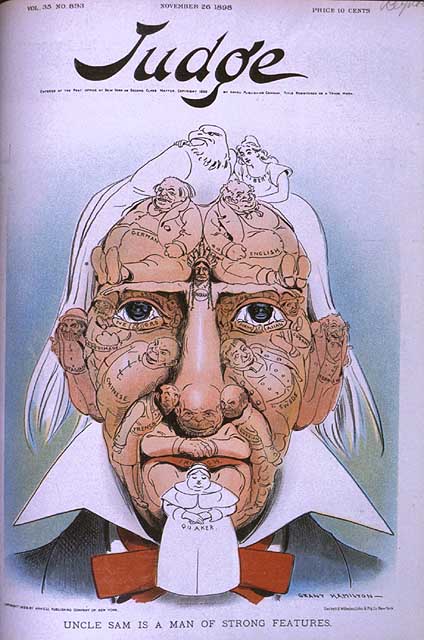-Throughout the course of the novel, how has Sara's vision of what a person should be change? Did Sara acquire the "American Dream" she desired?
-Although Hugo Seelig tells Sara that they are of "one blood," in what ways are they different and what role does Hugo play in mending both Sara's "old" and "new" worlds?
-Why does Sara accept her father back into her life after the way he has treated her mother, sisters, and herself?
-What is the significance of the shadow that follows Sara around in the end of the novel?
-Was Sara successful in becoming an "American" or do you believe that Sara failed to become a person of the "new world"?
-Overall, what message is Yezierska trying to convey regarding an immigrant's internal struggle to find harmony between his or her "old" and "new" worlds?

Sara’s vision of an ideal person first centered on becoming independent and living a comfortable and stable life.She accomplishes this when she can finally support herself after receiving her college diploma and teaching. She even indulges in the “honeymoon” phase of her career and success but this is cut short because of her mother’s sickness (soon turned into death). Sara realizes her repressed desire of being loved and surrounded by her family when she loses her mother. Sara even feels constant pangs of guilt because she postponed seeing her mother in order to attend college. In addition to losing her mother, Sara also saw her father’s health plunder. Once on her way to see Hugo Seelig, Sara bumps into an old man and knocks his gum off a tray only to realize that it was her very own father, her father who was now working because his new wife Ms. Feinstein wanted more money.
ReplyDeleteIt seems as if seeing her parents in miserable conditions strikes Sara back to reality, worsening her guilty conscience. Sara can’t dictate her life, she can’t completely indulge in happiness and her money because the burden of her family’s poverty will always rest on her shoulders. As a consequence she inevitably feels the responsibility to alleviate their burden. Sara's past creeps up on her to the point where eventually she negotiates her "American Dream". She volunteers to take her father under her care, aware of the fact that this means she would have to live under her father’s orders and rules. The independence and privacy of her dreams were sacrificed, however, Sara does get to keep some parts of her dream, she can finally start her life with Hugo (someone she, not her father, found) and continue her teaching career.
At the beginning of the book the mother declares “Only millionaires can be alone in America” (13). It is something Sarah aims at achieving throughout. Once accomplished, the obvious occurs—loneliness. There is only a single character (who I can think of) that voluntarily chooses to stay solo; he is sick, wet, unaffectionate, underpaid and downright bitter. I think that is why Sarah must end up with someone in the end. To show that there is wisdom in the old country’s concerns of old madism. While the reasoning has always been for financial stability, the new world proves there is a greater treasure in finding a mate. It is part of that inner fulfillment thing we were discussing in class. Sarah does not “marry” to complete herself, but rather to show her audience that solitude is too extreme. Just like the modest dress she chooses at the dept. store and the minimalist feel of her apt. Extremes, are, well, extreme. If something costs $4000 and goes for $400 it is probably too good to be true, same goes for the shoppers buying produce at 50% off. Find a middle ground and you’ll be grounded.
ReplyDeleteRockefeller & Carnegie are called upon again and again as the ultimate! Today it might be Trump, last decade when he was broke we idolized the guy from Wall Street (kind of funny how they switched places huh?). I think Anzia Yezierska would like us to look closer to home for role models.